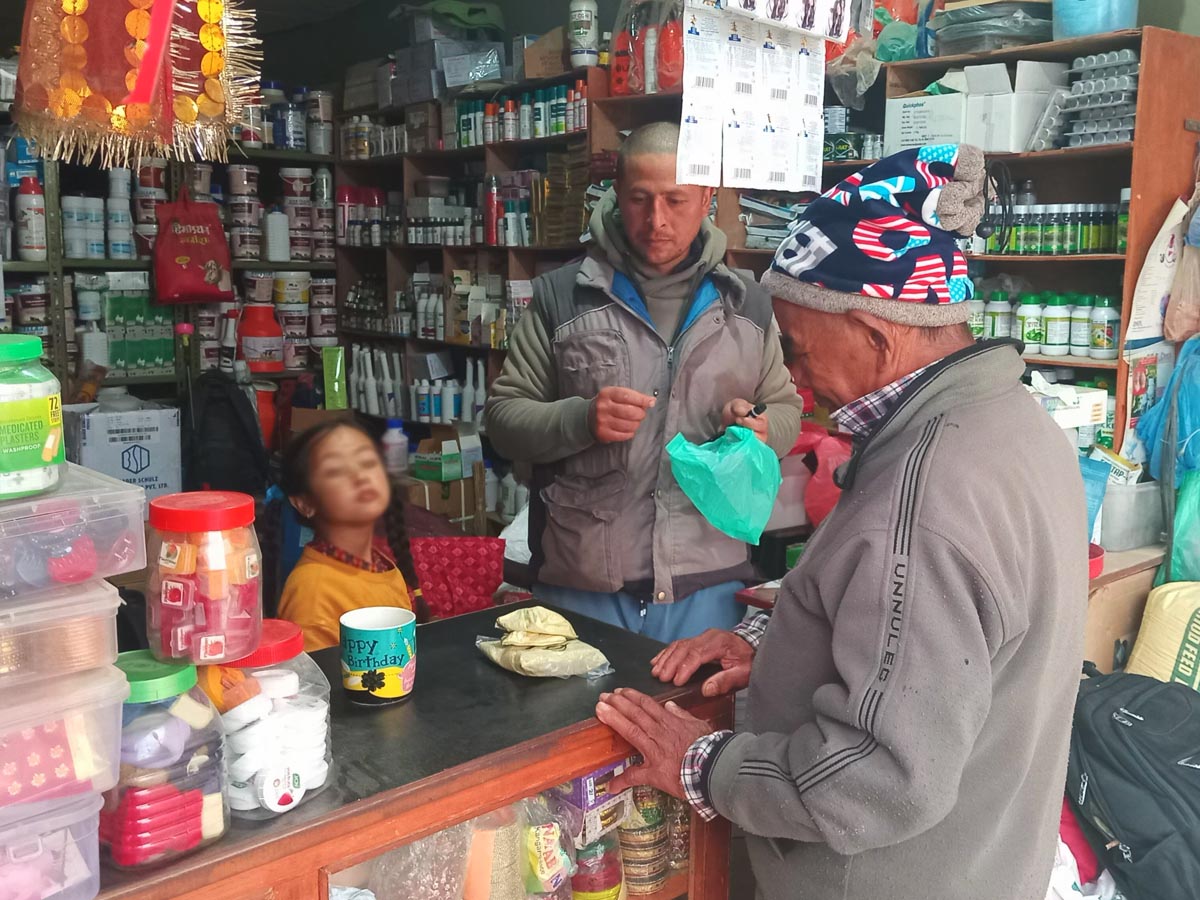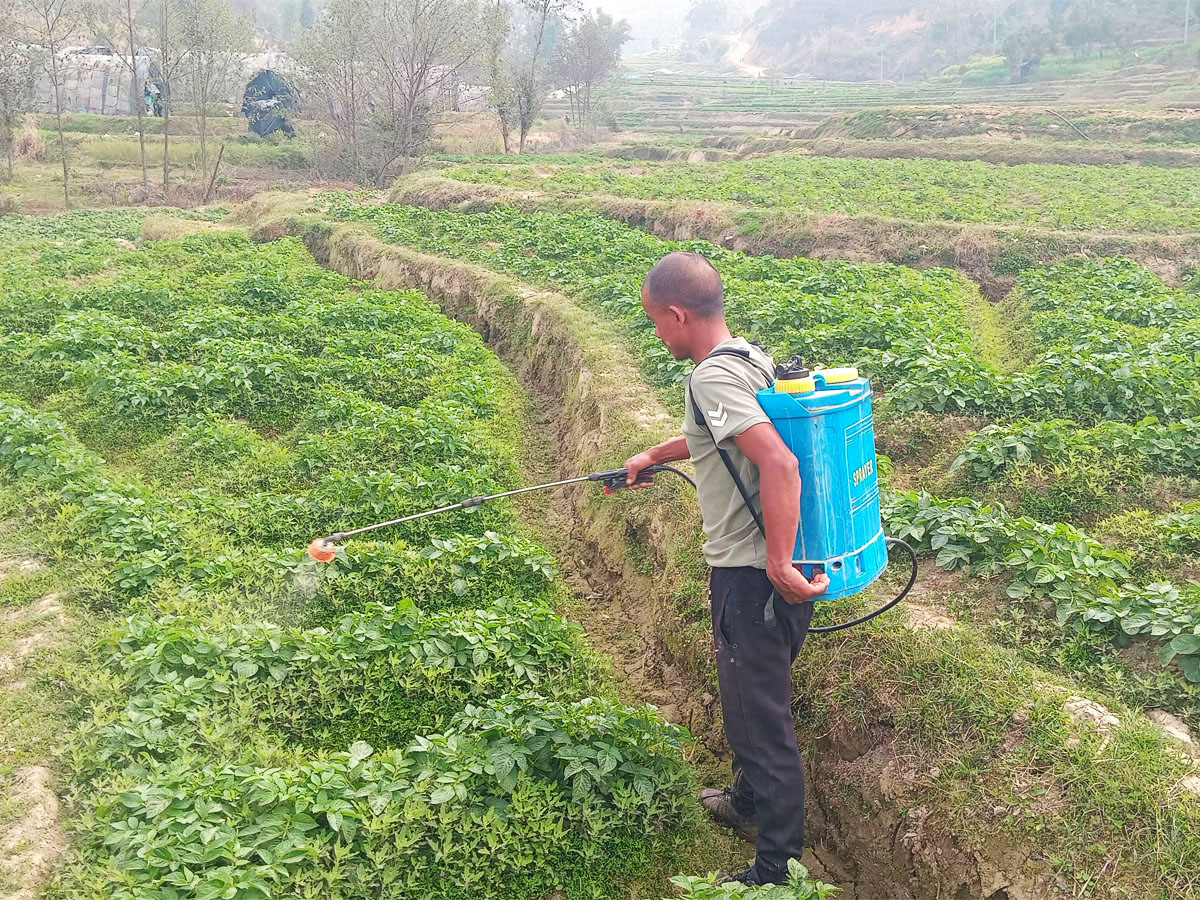Editor's Note: This story was first published in Nepali, read it here: नुनको गुण तोक्ने २६ वर्षअघिको कानुनमा सरकारको अल्झन. Following the publication of this investigation, the Nepal government has decided to implement the 1998 Act (2055 BS) to regulate iodized salt, effective from July 17, 2025. The Industry, Commerce, Labour, and Consumer Welfare Committee of the House of Representatives has called for the formation of a task force to determine the amount of iodine in salt, citing the high iodine content.
***
“Whereas, it is expedient to make provision for the production, import, supply, sale, distribution of iodized salt in a proper quantity and for mixing iodine with salt in order to prevent and eradicate extensive and serious effects caused to public health from iodine deficiency,” says the preamble of "Iodized Salt (Production, Sale and Distribution) Act, 2055 (1998),” which was enacted by parliament of Nepal in 1998 and authenticated by King Birendra on January 15, 1999.
 The preliminary further says that the Act shall commence in such areas on such date as the Government of Nepal may appoint, by a Notification in the Nepal Gazette. The Act was authenticated and published in the national gazette on January 15 but the notice of commencement (enforcement of the act) has not been published in the national gazette rendering this Act effectively without implementation. The Act contains provisions related to formation of mechanisms to ensure appropriate amounts of iodine in salt and the measures of punishment for those who defy these provisions. The tests performed by Nepal Investigative Multimedia Journalism Network (NIMJN) on salt samples has shown that lack of implementation of this law has resulted in consumers having to consume more iodine than prescribed and misconducts in the trade of salt.
The preliminary further says that the Act shall commence in such areas on such date as the Government of Nepal may appoint, by a Notification in the Nepal Gazette. The Act was authenticated and published in the national gazette on January 15 but the notice of commencement (enforcement of the act) has not been published in the national gazette rendering this Act effectively without implementation. The Act contains provisions related to formation of mechanisms to ensure appropriate amounts of iodine in salt and the measures of punishment for those who defy these provisions. The tests performed by Nepal Investigative Multimedia Journalism Network (NIMJN) on salt samples has shown that lack of implementation of this law has resulted in consumers having to consume more iodine than prescribed and misconducts in the trade of salt.
The World Health Organization (WHO) has set a standard of 40 PPM (parts per million) at the production level and 15 PPM when it reaches consumers as the acceptable iodine content in salt. According to the government-set standard, salt sold in Nepal should have 30 PPM iodine when it reaches consumers. However, when NIMJN tested samples of iodized salt packets collected from all seven provinces, results showed as much as 52.4 PPM level. Tests by the government's Food Technology and Quality Control Department showed as much as 80 PPM level iodine in the salt that consumers use in their kitchens.
To control goiter, the government of Nepal set the iodine level at 30 PPM when it reaches the consumer's kitchen in 2000. Neighboring India has a standard of 15 PPM when consumers purchase salt in retail shops and 30 PPM during production.
As the Act has not been implemented, the mechanism to monitor the quality and standards of salt being sold and distributed in Nepal has yet to be formed. “Because the Act has not been implemented we have salt that may not have required iodine or more than the required amount in our kitchens,” said Jyoti Baniya, senior advocate and the chair of Consumer Welfare Protection Forum.
The Act has not come into implementation because the council of ministers has to take the decision, acting on the proposal of the Ministry of Health, to publish the notice to that effect in the national gazette. But such a notice has yet to be published in the gazette. “The law passed by the parliament 26 years ago has neither come into effect nor repealed,” said Baniya.
According to the Family Welfare Division of the Department of Health Services of the government of Nepal more than 97% households use iodized salt in their kitchens. Experts attribute the rise of thyroid cases in people to the consumption of highly iodized salt. “The cases of thyroid have increased due to high concentration of iodine in salt,” said Dr. Anshumali Joshi, endocrinologist at Kathmandu Diabetes and Thyroid Center.
Consumers have shifted to rock salt due to higher iodine levels in Aayo Nun. NIMJN’s test, however, showed rock salt also containing 32.7 ppm of iodine.
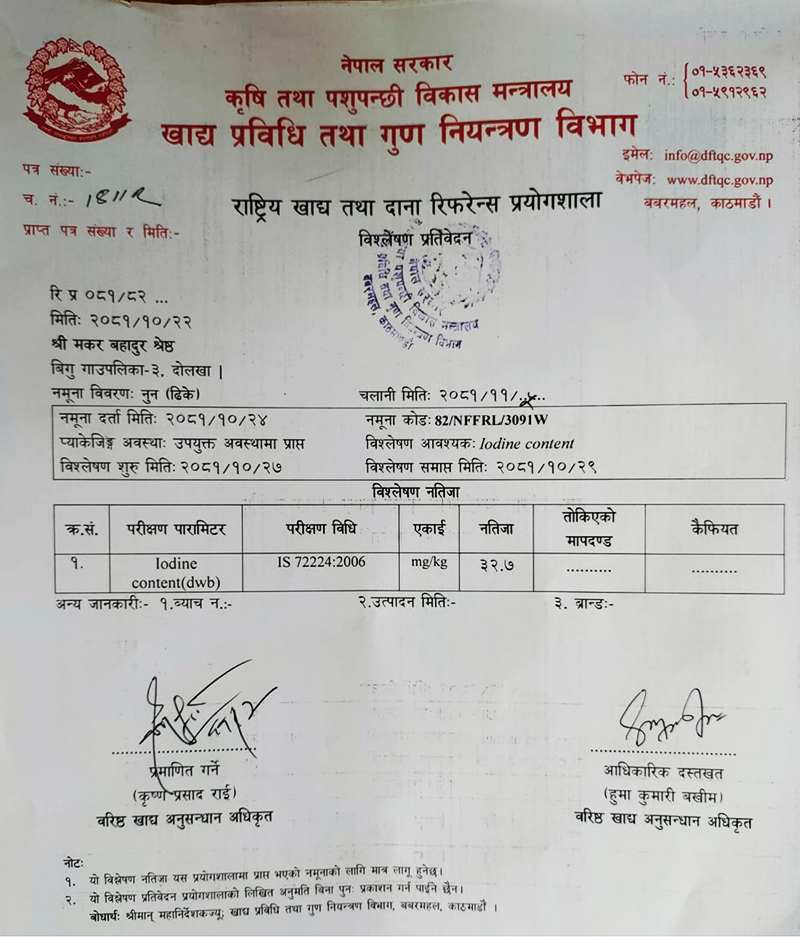
The matter was raised in the parliament claiming that the government has only determined the minimum level of iodine content, which is again higher than the amount prescribed by WHO, maximum level of iodine has not been fixed, and there is no mechanism for regular monitoring of iodine content in salt. Citing the findings of NIMJN’s report, parliamentarians Krantika Sejuwal and Nisha Dangi raised the matter in a parliament meeting. “Reports show higher levels of iodine in Aayo Nun and its adverse impacts on health. The government needs to study the matter and tell the people the truth,” Sejuwal told NIMJN.
Defying Supreme Court verdict
The Supreme Court of Nepal had issued an order to the government 15 years ago to bring into effect the law that was passed by parliament and authenticated by the king 26 years ago. But that order has not been complied with. Demanding that the law should be effected Sahadev Gautam, from Republican Consumer Forum, had filed a writ at the Supreme Court in 2008. Joint bench of then Chief Justice Ram Prasad Shrestha and Justice Girish Lal Chandra Lal had issued a verdict on July 8, 2010, giving a directive order to implement the law.
The court stated that the government has made no efforts to implement the law and it has shirked its obligation. “Since the government has not been found as yet to bring into effect the law passed by legislature parliament, considering the need for specific law, in 1998, the government authority has not been found to fulfill the duty as determined by the law,” the Supreme Court directive states. The verdict states that the law has to be implemented to protect the physical and mental health of Nepali people. “Since there is no dispute that the said law deserves to be implemented for the protection and preservation of physical and mental health of Nepali people, implement the Iodine Salt Act 1998 by demonstrating readiness and by formulating the related rules to that effect,” says the court order.
The directive order was issued in the name of the Office of the Prime Minister and Council of Ministers. As the court order was not implemented, the Consumer Welfare Protection Forum on January 19, 2025, had registered an application in the Verdict Implementation Directorate. Based on the complaint letter, the same day, the Directorate made a request to the Office of the Prime Minister and Council of Ministers, the Ministry of Law, Justice and Parliamentary Affairs and Ministry of Health and Population to implement the court verdict of July 8, 2010. “It is hereby requested as per the directive to implement, or caused to be implemented, the Supreme Court directive and inform the Directorate regarding the same,” said the letter.
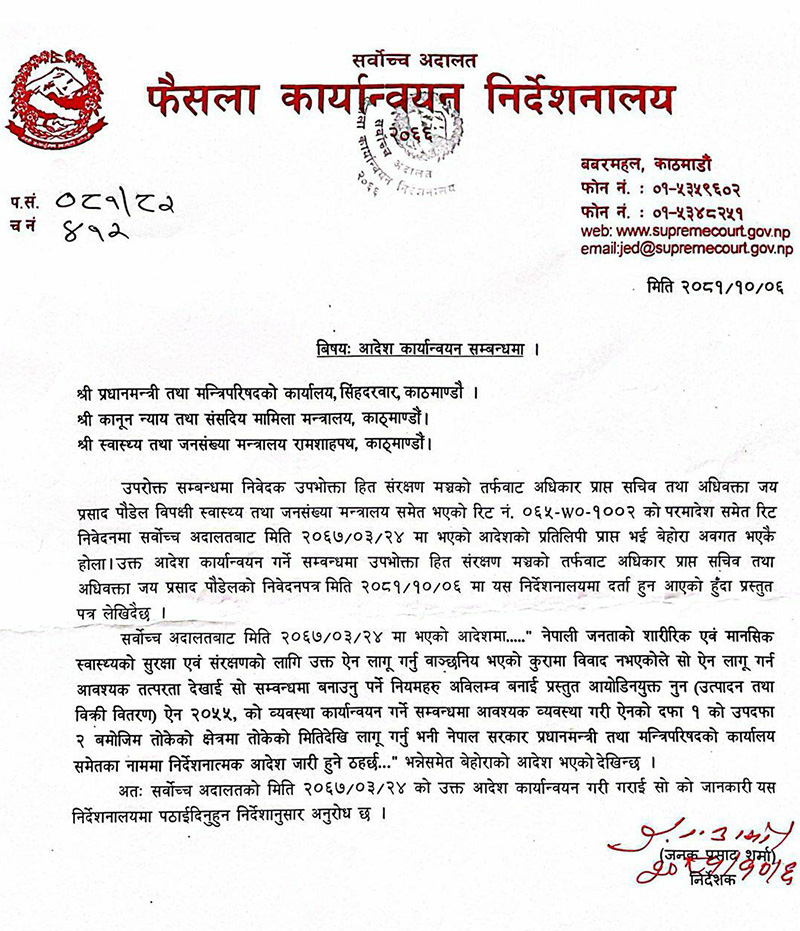
Correspondence has been made on January 22, 2025 from the Office of the Prime Minister and Council of Ministers to the Ministry of Commerce and Supplies and Ministry of Health to update the details regarding the progress on the implementation of the court order to the Directorate and Consumer Welfare Protection Forum. “One authority corresponds with another but we have not yet received the letter regarding the implementation status of law,” said Baniya, the chair of the Forum.
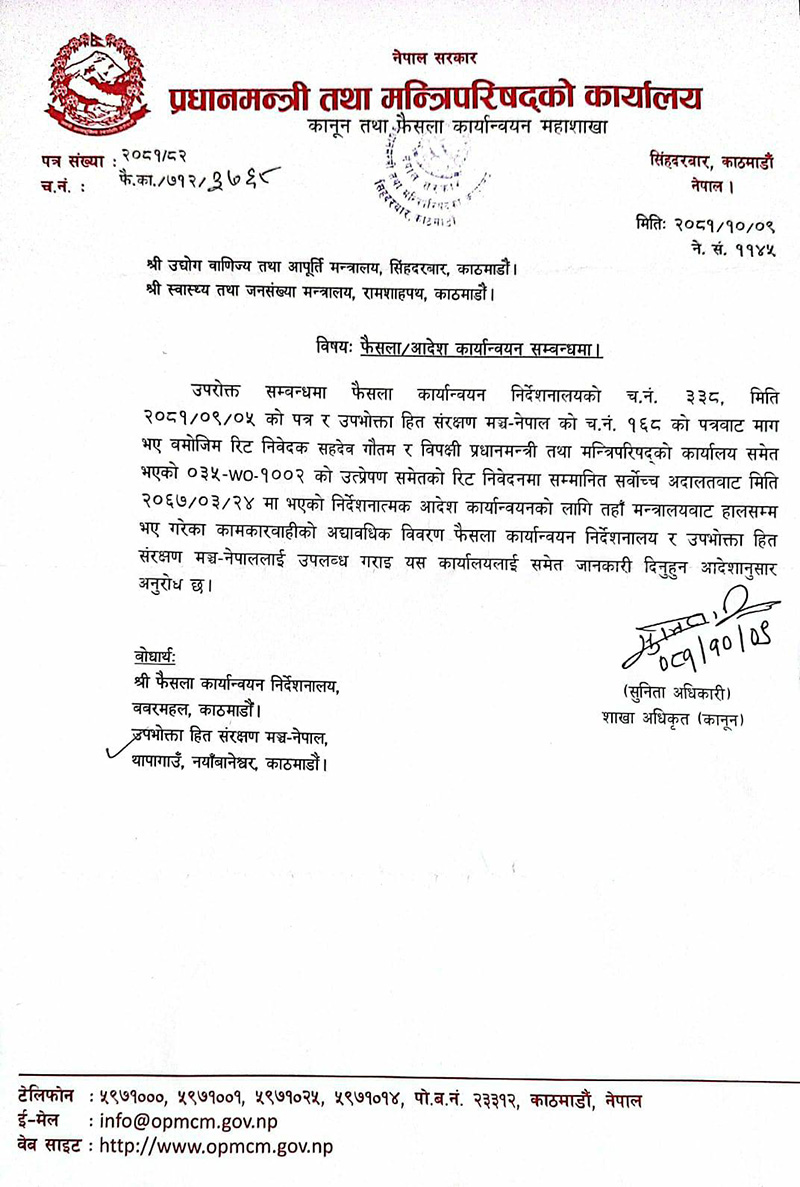
Ram Narayan Bidari, former chair of Public Policy and Delegated Legislation Committee of National Assembly of federal parliament argues that the government has no liberty not to implement the law passed by parliament. “The state took the bill to the parliament based on need. And it was passed too. It is strange that it has not been implemented yet,” said Bidari. “That the law passed considering the public health welfare of the people has not been implemented yet indicates the weakness of the government.” He pointed to the possible collusion among the government actors and black market rackets in non-implementation of this vital law. Bidari points to the weakness of parliament as well. “By not implementing the law approved by parliament, the government has become unaccountable to parliament. Why did they make a law that cannot be implemented? This happens when you rely on the government to implement the law. A law is formulated on state’s expenses. Then the parliament seems to say implement it at your will. How can the parliament be so inactive?” Bidari also holds that non-implementation of the law is because of the delegation of sole authority to the executive to implement the law.
Foul play by interest groups
Birod Khatiwada, who was the parliamentarian and coordinator of the parliamentary subcommittee which forwarded the report containing recommendation to formulate salt law in 1996, pointed to foul play by interest groups for non-implementation of the law. He claims that Salt Trading Corporation of Nepal is one such interest group. “We recommended formulating a new law as the law to decide the quality of salt and distribution of consumable salt was non-existent,” Bidari recalled. “The law was passed by the parliament in 1998. It is unfortunate that it has not been implemented yet. The interest group influenced the government,” he said.
The Public Account Committee of the parliament in 1996 had constituted a subcommittee with Birodh Khatiwada as its coordinator to study the works carried out by the government to control goiter. The law formulated on recommendation of this subcommittee has a provision of the government issuing permit to the organization that imports salt. According to Khatiwada, the government has not implemented this law because once the law comes into effect, organizations, other than Salt Trading, too might demand permits for importing salt. The government has 21% and public around 79% shares in STC, which boasts of 310 717000rupees in paid up capital. “The law has a provision to the effect that one or more than one person or organizations may obtain a permit to import and trade salt. It is because of the lobbying by Salt Trading that the notice was not published in the national gazette. Interest groups are in foul play here,” Khatiwada said.
Salt Trading Corporation, however, refutes Khatiwada’ claim. Kumar Rajbhandari, spokesperson of Salt Trading, argues that STC is not the authority to implement the law and that it implements the decision made by the government. “Our duty is to implement whatever law is in effect,” he said. “We cannot stop the law made by the parliament.”
Amendment sans implementation
The Ministry of Health and Population, on the other hand, is gearing up efforts to amend the same law that has not been implemented yet. Dr. Prakash Budhathoki, spokesperson at the ministry, said discussions are underway regarding how to implement the law. According to him, preparations are underway regarding amending the law to ensure the quality of salt. “Salt Trading, as an industry entity, has been allowed to import salt but quality guarantee has not been ensured,” he said. “So what kind of law do we need now? We have issued a directive to the Family Welfare Division to study the matter and forward recommendations.” He said discussions will be held with the stakeholders based on the recommendations and decisions shall be taken regarding whether to publish the notice in the national gazette for law enforcement or for amendment of law.
What’s in the law?
The law has the provision regarding clear information and educational materials about iodized salt, necessity and importance of iodized salt for the health of human beings and possible effects on the health of human beings from consuming and feeding non-iodized salt, among others. It also says that the standards and quality of iodized salt shall be determined by a separate committee. But as the law has not come into effect, standards and quality have not been determined yet. Section 16 of the Act contains provisions related to certification of standards whereby a producer, dealer or distributor should, prior to the sale and distribution of iodized salt through a dealer in Nepal, get the salt standards examined and certified by the Central Food Laboratory. Likewise, the label pasted on the salt package should contain information regarding year and month of the packaging and iodine content in PPM.
The government needs to appoint inspectors in order to inspect and inquire into whether the producer, importer, supplier and distributor have observed the Act. There is a provision of revoking the permit if a person or organization fails to ensure compliance to standards and quality.
The Act has a provision of Iodine Deficiency Disorder Prevention Committee with 13 members comprising Secretary of Ministry of Health and Population as Chairperson and representatives from Ministry of Industry, Commerce and Supplies, Ministry of Health and Population, Central Food Laboratory, persons nominated by the government from amongst the persons or bodies involved in the production, import, supply, sale and distribution of iodized salt, nutrition specialist, experts and consumer representatives as members.
The Committee is empowered to approve the labeling and packaging of iodized salt. It also coordinates public awareness campaigns and educational resources concerning iodized salt. Furthermore, the Committee oversees and monitors adherence to legal requirements. It can also instruct inspectors to investigate and initiate legal proceedings against individuals involved in the unlawful production, import, supply, sale, or distribution of iodized salt.
In reality, this Committee remains nonexistent due to the law's lack of enforcement. "Had the government enacted this legislation, the sale and distribution of non-edible salt would have been outlawed," Baniya stated. "Currently, it appears the government is condoning these actions, which are detrimental to consumer well-being."
The writ filed at the Supreme Court states that the salt imported and sold in Nepal should be iodized but the iodine level should be at par with the standards set by WHO, the reason cited for the implementation of the law. The writ states: “General public has been deprived of their fundamental right to healthy life due to import, distribution and consumption of inedible salt resulting from the lack of implementation of law.”
Dr. Bibek Kumar Lal, chief of Family Welfare Division of the Department of Health Services, admits activities to promote iodine are going on for years amid lack of legal clarity. He said that he only recently learned that the law authenticated in 1998 was yet to be implemented. “This law has direct bearing on the quality and standards of salt. But it has not been implemented. The government has to publish a notice in the national gazette for its implementation which has not happened,” he said. “This means the law has not been implemented.” He said that he only learned last year that the legal provision of regular monitoring has not been in effect.
Postscript: Shutting down plants in Nepal, iodizing in India
As many as 55% Nepalis suffer from goiter, said a study report in 1965. Twenty years later another study found that 39% people suffered from that disease. As more than 50% percent people were found to be suffering from goiter, the government of the day started the Goiter Control Project, which started adding iodine content in salt in 1973. After that in 1985, goiter affected population came down to 39%, states the study report prepared by parliamentary subcommittee headed by Birodh Khatiwada. The report ascribes this change to the initiative of the Goiter Control Project.
The Subcommittee was tasked to study the status of transaction of iodized salt, state of buffer stock of salt and effectiveness of goiter control project. According to the Subcommittee report, submitted on March 16, 1997, iodization plants in Bhairahawa, Birgunj and Biratnagar were working to mix iodine content in salt since 1985. These three plants had the capacity to iodize 36,000 tons of salt annually, during which 120,000 tons of salt would be consumed annually across the country. The Subcommittee reports states. “Additional plants need to be established to become self-reliant in the future.”
Let alone the recommendation to set up additional plants, even the three plants we had in Nepal were shut down and salt today is iodized in Indian plants. The equipment of the plants, bought through joint investment of government of India and UNICEF, do not exist even in remnants. NIMJN inspected the status of equipment in three plants and found that the equipment, set up 28 years ago, were missing. “We have no knowledge that the iodization process took place in Nepal. There is not a single piece of equipment of that time either,” said an employee working in the Biratnagar Regional Office, requesting anonymity. The spokesperson of Salt Trading Corporation Rajbhandari said that since the iodization process takes place in India itself, Nepal does not need to add iodine content to salt. “Only if the test shows low iodine level, we mix iodine to salt,” he said.
The Subcommittee report shows that salt has been iodized and sold with the assistance of India and UNICEF since 1972/73. According to the report around 230000000 was spent from 1972 to 1996 in iodization, transportation, plants and machineries.
Former parliamentarian Birod Khatiwada suspects collusion in allowing iodization in India instead of setting up additional plants in Nepal. “Iodization plants were in operation during the time of our study. Those plants had to be expanded. There may be a vested interest in shutting down the plants,” he said. “Economic maneuvering led to iodization in India.”
Please adhere to our republishing policy if you'd like to republish this story. You can find the guidelines here.


